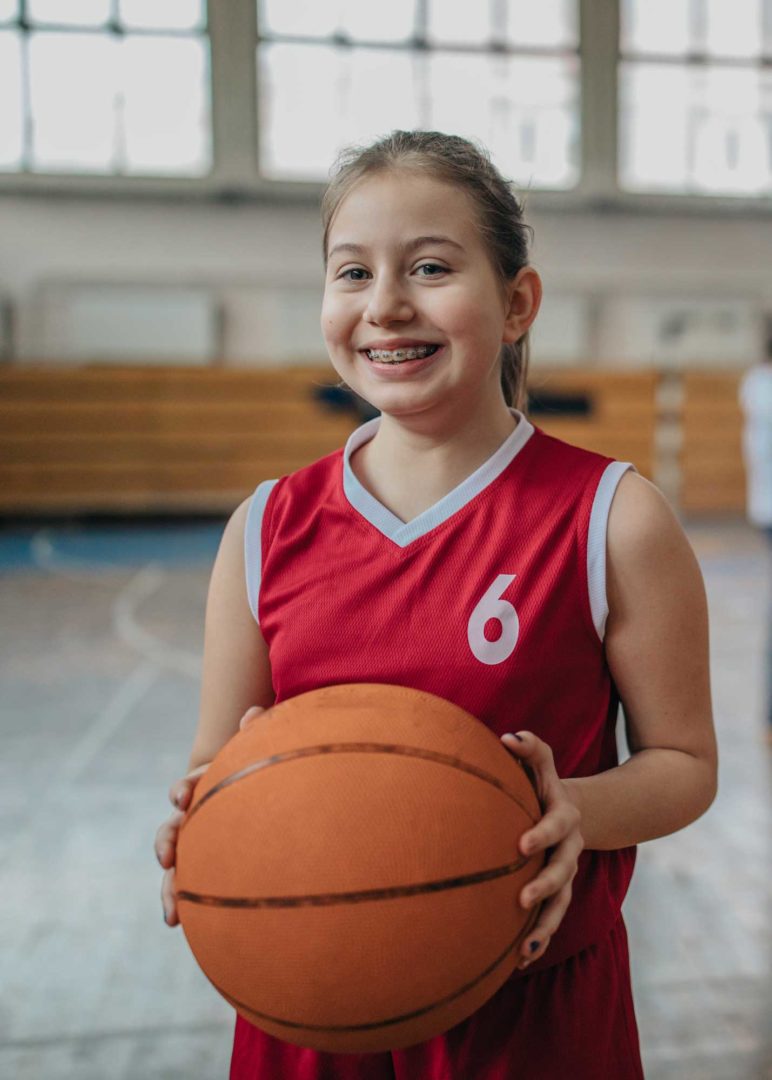General Soreness
When you get your braces on you may feel general soreness in your mouth, and teeth may be tender to biting pressures for three to five days. Rinsing your mouth with a warm salt-water mouthwash can relieve this soreness. Dissolve one teaspoonful of salt in 8 ounces of warm water and rinse your mouth vigorously. If the tenderness is severe, take an over the counter pain reliever in the recommended dosage every 4-6 hours. Your lips, cheeks, and tongue may also become irritated for one to two weeks as they toughen and become accustomed to the surface of the braces. You may use wax on the braces to lessen this. We’ll show you how! We are here to help.
Loosening of Teeth
A feeling of loose teeth is to be expected throughout treatment. Don’t worry! It’s normal. Teeth must loosen first so they can be moved. The teeth will again become rigidly fixed in their new corrected positions.
Loose Wire or Band
Don’t be alarmed if a wire or band comes loose. This happens occasionally. Please call our office to describe the situation and receive instruction. In the meantime, here are some helpful tips to get you by until the pros can take care of you.
Broken bracket
Call our office immediately! We will arrange for repair visit, or at least a comfort visit. You can place wax on the broken brace to stabilize it (if it’s still attached to the orthodontic wire), or bring it to us for repair or replacement.
Poking wire
If a wire protrudes and is irritating, use a blunt instrument (the back of a spoon or the eraser end of a pencil) and gently push the irritating wire under the arch wire. If irritation to the lips or mouth continues, place orthodontic wax on the wire to reduce irritation. Call our office as soon as possible for an appointment to check and repair the appliances. If any piece comes off, save it and bring it with you to the office.
Care of Appliances
To successfully complete the treatment plan, you must work together with Dr. T. Barrett Trotter and Dr. Paul G. Trotter. The teeth and jaws can only move toward their corrected positions if you consistently wear the rubber bands or other appliances as prescribed. Damaged appliances lengthen the treatment time.
Brushing
It’s more important than ever to brush and floss regularly when you have braces so the teeth and gums are healthy during and after orthodontic treatment. Patients who do not maintain good oral hygiene during orthodontic treatment may finish treatment with permanent discoloration of their teeth.
Athletics
If you play sports, it’s important that you consult us for special precautions. A protective mouth guard is advised for playing contact sports. We can provide mouth guards that work with your braces. For those who are not yet in braces, there are many inexpensive mouth guards on the market that protect your smile. In case of any accident involving the face, check your mouth and the appliances immediately. If teeth are loosened or the appliances damaged, phone at once for a team member to contact you. In case of bleeding or trauma to the lip or face, stay calm, place ice to control bleeding/swelling area, and seek help from us or the Emergency Department of the hospital.

Eating with Braces
For the first day or so, stick to soft foods, but moving your teeth frequently by chewing will reduce the degree of pain and its duration. Avoid tough meats, hard breads, and raw vegetables. Before long, you’ll be back to eating all of your favorite foods again, but you’ll need to avoid certain foods for as long as you’re wearing braces.
Foods to Avoid
- Chewy foods: bagels, hard rolls, licorice
- Crunchy foods: popcorn, ice, thick, hard chips
- Sticky foods: caramels, gum
- Hard foods: nuts, candy
- Foods you have to bite into: corn on the cob, apples, carrots
- Chewing on hard things (for example, pens, pencils or fingernails) can damage the braces. Damaged braces will cause treatment to take longer.
Schedule your complimentary evaluation.
If you have a tooth knocked out of your mouth, there are a few important steps to take: